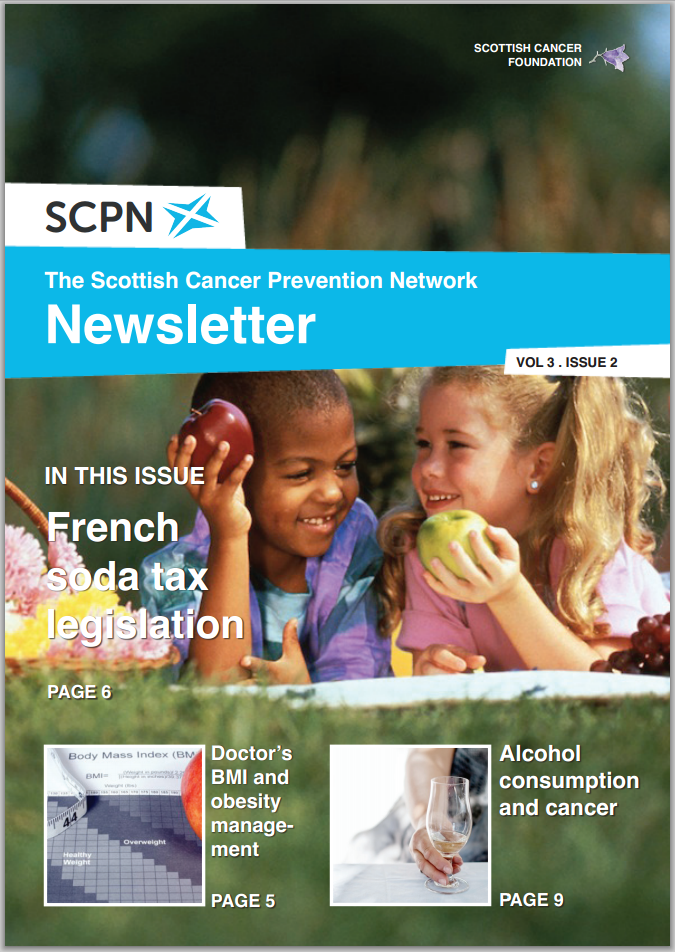
French Soda Tax Legislation

16 Apr 12 |
New legislation in France to tax sugar sweetened beverages by one euro cent per container, is now in effect. The duty was passed by the Constitutional Council with the aim to reduce obesity levels within the French population but also generate income to combat the euro debt crisis.
France is now one of various European countries to introduce such a measure on food and drink products that contribute towards the public’s poor nutrition and health status. Denmark also recently made headlines for introducing ‘fat tax’ on all food stuffs containing more than 2.3% saturated fat, while Hungary have introduced taxes on a range of pre-packed foods that are high in salt and sugar, for example energy drinks, crisps and chocolate. Both countries are utilising the revenue raised to benefit their health care systems.
In the UK, VAT is currently only added to certain ‘luxury’ foods such as ice-cream, fizzy drinks and confectionary, while all other food products remain tax free, including cakes and biscuits. A government report in 20041 considered implementing a food tax approach to improve public health, however the unpopular proposal was promptly removed from the finalised report. Caraher and Cowburn (2005)2, report that there is a case for combining taxes of unhealthy foods with subsidies of healthy food, as it is more likely to receive public support than simply adding tax to foods alone.
While food manufacturers are indignant of such a proposal on their products, expert bodies such as the World Health Organisation and Food and Agriculture Organisation3 state that the pricing of healthy foods is a key element in the prevention equation, driven by the rise in diet-related non-communicable diseases. Therefore if food taxes are to be implemented, the likelihood of success in improving public health could be increased with a form of subsidies on healthier food choices.
Labour Shadow Public Health Minister, Dr Richard Simpson, consequently proposed a motion (supported by supported by Patricia Ferguson, Helen Eadie, Ken Macintosh, Mark Griffin, and Alison Johnstone), to the Scottish Government to consider giving local authorities the power to introduce tax on sugary drinks and use the income to improve school diets and support community-based nutritional improvement initiatives. It was highlighted that the average individual in France has increased their weight by three kilos since 1997, while the consumption of sugary drinks in Scotland is around 20% more than in England and more than France4.
While the Scottish Health Survey (2011)5 reported that obesity levels could reach 40% by 2030, this motion, Vive la France, fell in December 2011 – again verifying the unpopular attitude towards taxing foodstuffs.
- Caraher, M. and Cowburn, G. Taxing food: implications for public health nutrition. Public Health Nutrition. 8(8), 1242-1249.
- The Cabinet Office. 2004. Personal Responsibility and Changing Behaviour: The State of Knowledge and Its Implications for Public Policy. London: The Cabinet Office, Prime Minister’s Strategy Unit.
- World Health Organisation (WHO)/ Food and Agricultural Organisation. 2003. Diet, Nutrition and the Prevention of Chronic Diseases. Technical Report Series No. 916. Geneva: WHO.
- The Scottish Parliament. 2011. Motion S4M-00892: Richard Simpson, Mid Scotland and Fife, Scottish Labour, Date Lodged: 20/09/2011. Available from: http://www.scottish.parliament.uk/parliamentarybusiness/28877.aspx?SearchType=Advance&ReferenceNumbers=S4M-00892&ResultsPerPage=10 (Motion)
- The Scottish Government. 2011. The Scottish Health Survey: Obesity. Scottish Government, Edinburgh.
This article was originally published in the SCPN Newsletter, Volume 3, Issue 2.
Read the full issue here:

The SCPN Newsletter: Volume 3, Issue 2
In this issue, we cover the French 'soda tax' legislation, the BMI and obesity management of Doctors, alcohol consumption & cancer, and more.